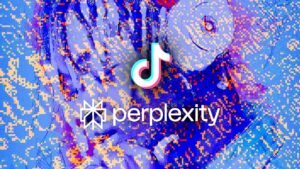
In my adult life, I’ve always turned to Google for answers and information. Recently, I decided to try out a new A.I.-powered search engine called Perplexity, created by former OpenAI and Meta researchers. The buzz around Perplexity, with endorsements from tech insiders and significant investments, intrigued me.
After several weeks of using Perplexity as my primary search engine, I found it to be quite impressive. Instead of providing a list of links, Perplexity uses A.I. to generate a summary of information found on the web, complete with source links. It excelled in complex and open-ended searches, offering well-annotated responses from reputable sources.
Navigating the Future of AI Search Engines
The emergence of such A.I.-driven search engines raises intriguing possibilities and challenges for the digital landscape.
Perplexity differs from Google, with its strengths such as AI-generated summaries, Copilot feature for refining queries, and the ability to search within specific sources. Also the limitations of Perplexity, including the smaller user base, lack of integration with other products, and potential concerns about accuracy.
While Perplexity performed well, I still found myself returning to Google for certain searches, especially those involving specific people or known websites. Google’s vast size, integrated services, and established ecosystem, including products like Gmail and Google Docs, give it a clear advantage.
Perplexity, the new AI-powered search engine
Perplexity has some useful capabilities that improve on traditional search engines, like providing summarized answers instead of just links, asking clarifying questions, and searching within specific domains. This seems genuinely helpful for many searches.
However, it still has limitations compared to Google when it comes to things like location awareness, scale, business model, and ecosystem. So traditional search retains advantages too.
There are still accuracy issues with AI hallucinations, though you found Perplexity fairly reliable drawing on its source material. Maintaining user trust on accuracy is a high bar for any search product.
This raises worries for online publishers who rely on Google search traffic and ad revenue. If AI summarization obviates visiting sites, it could deeply impact digital media economics.
It seems AI search brings meaningful benefits but also poses risks we haven’t fully reckoned with.
Perplexity, with its 10 million monthly users, lacks a robust business model and the extensive reach of Google. It currently relies on a subscription model, with less than 100,000 users opting for the premium version. Despite its strengths, Perplexity faces challenges such as limited resources, and it remains to be seen if it can truly compete with Google’s dominance.
The pros and cons of using AI-powered search engines like Perplexity instead of Google
- Privacy and data collection. Google collects an enormous amount of personal data about its users which it uses to target ads and improve its products. Perplexity claims it does not collect personal data, but as a start-up its privacy protections may not be as strong or transparent as a more established company. This is something to weigh.
- Algorithmic bias. All A.I. systems contain and amplify societal biases based on what data they are trained on. It’s unclear how Perplexity or other A.I. search engines may encode different biases compared to Google. More transparency around training data and evaluation would help assess this.
- Economic disruption. The shift towards A.I. summarizing or replacing online content could significantly disrupt digital media and other industries. But major technological shifts often involve transitional pains before new business models emerge. There may be opportunities ahead even if the path there causes job losses or instability.
- Evaluation standards. The accuracy bar for Perplexity seems lower right now compared to expectations people have of Google. As A.I. search engines improve and become more prominent, user expectations around accuracy, fact checking, and transparency will likely increase.
All the concerns around privacy, bias, economic impact, and responsible development of these technologies remain crucially important. There are no easy answers, but raising questions as you have is a constructive way to push the conversation forward.
One notable concern with A.I.-based search engines is the potential for inaccuracies or hallucinations in responses. While Perplexity generally provided accurate information, I encountered a few errors during my tests, reminding me of the challenges in perfecting A.I. search technology.
As a user, I appreciated Perplexity’s humility in admitting when it didn’t know something. However, the rise of A.I. search engines like Perplexity raises broader concerns about their impact on traditional publishers and the digital media industry. If A.I. can efficiently summarize content, users might bypass publishers’ websites altogether, leading to potential revenue loss and challenges for content creators.
We need to weigh convenience against the health of the broader media ecosystem. Responsible development of AI will require nourishing that ecosystem too. We’re still very early in understanding the implications here. Your perspective as a thoughtful user highlights important considerations for the road ahead.










